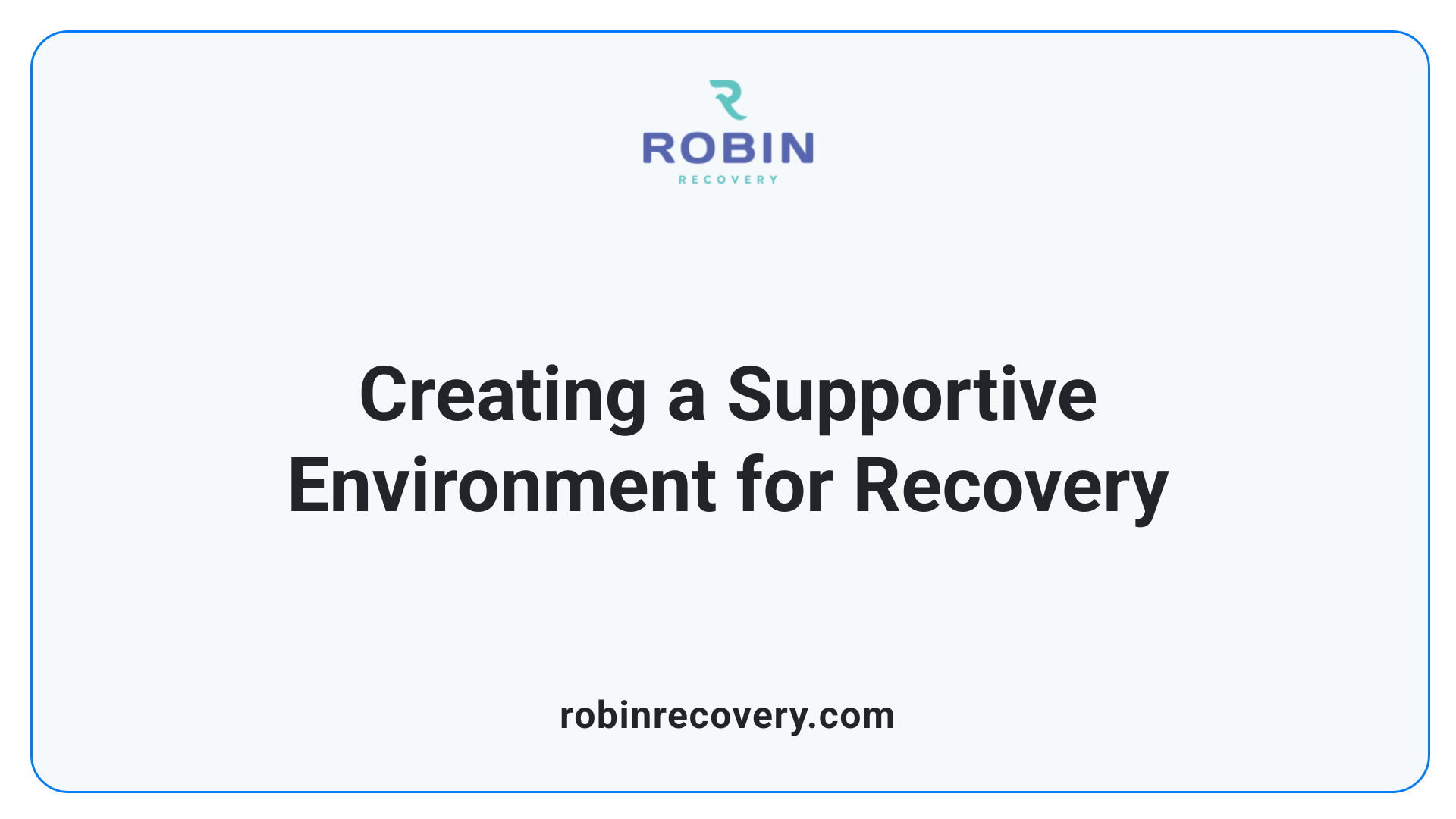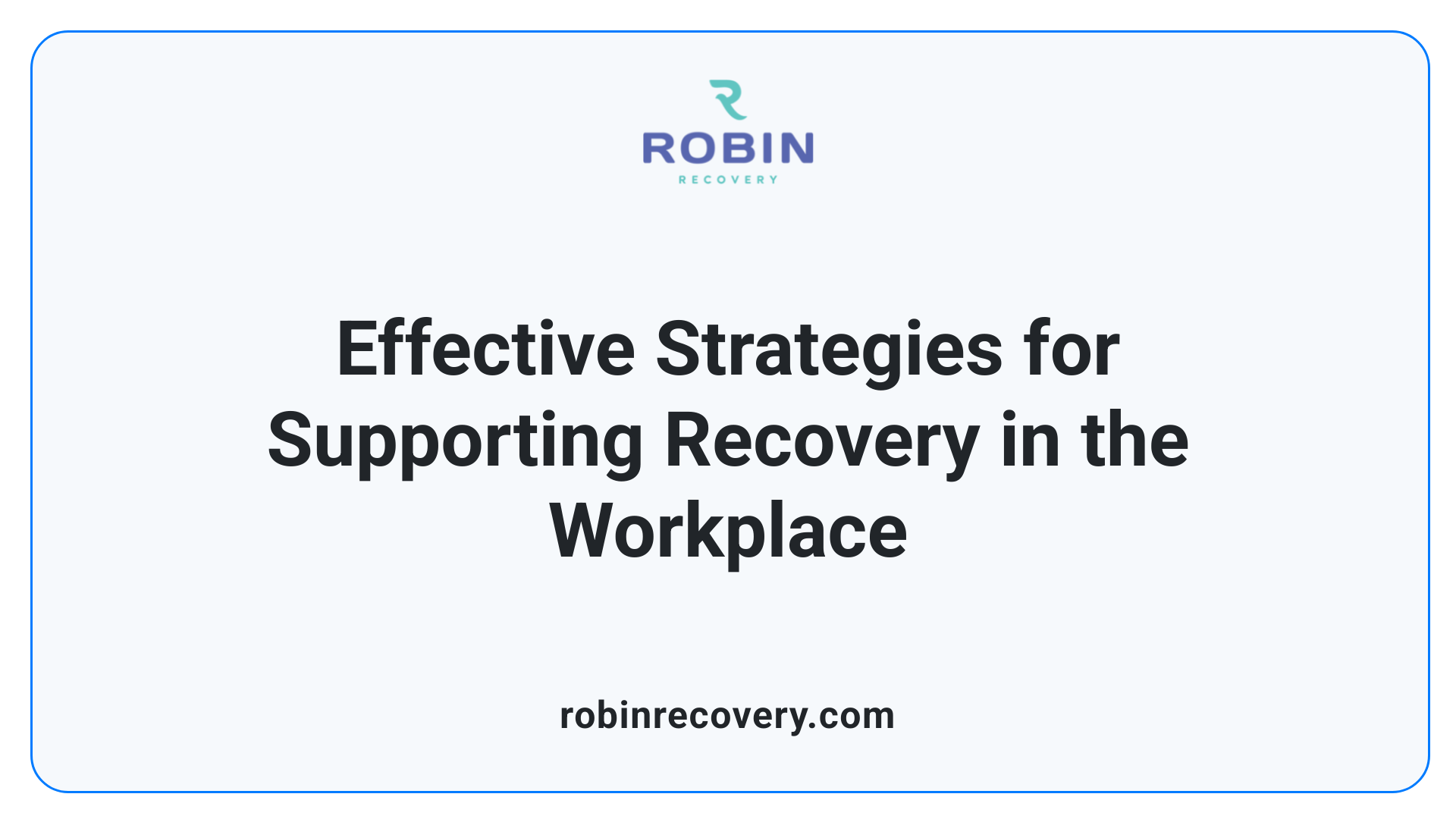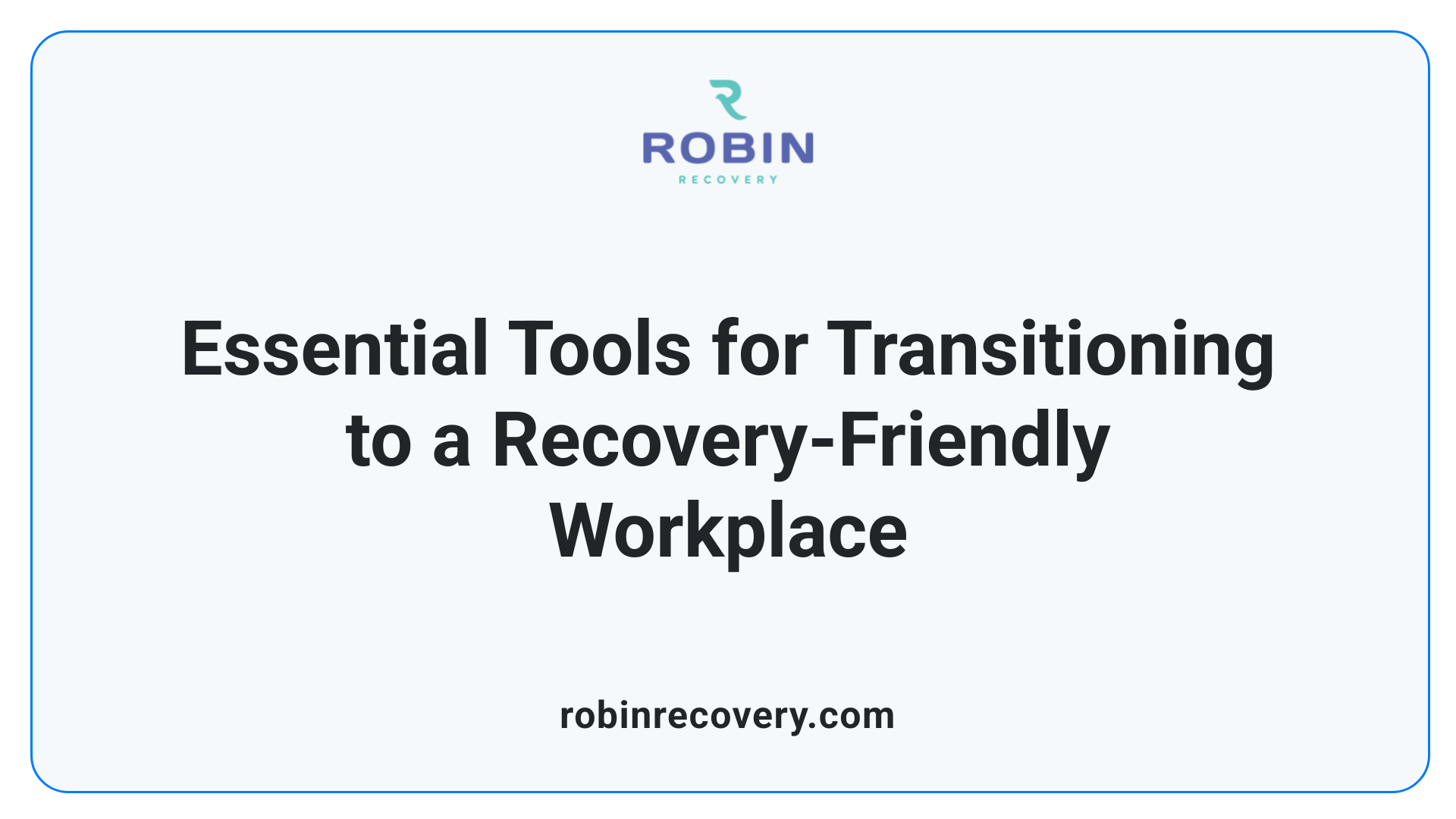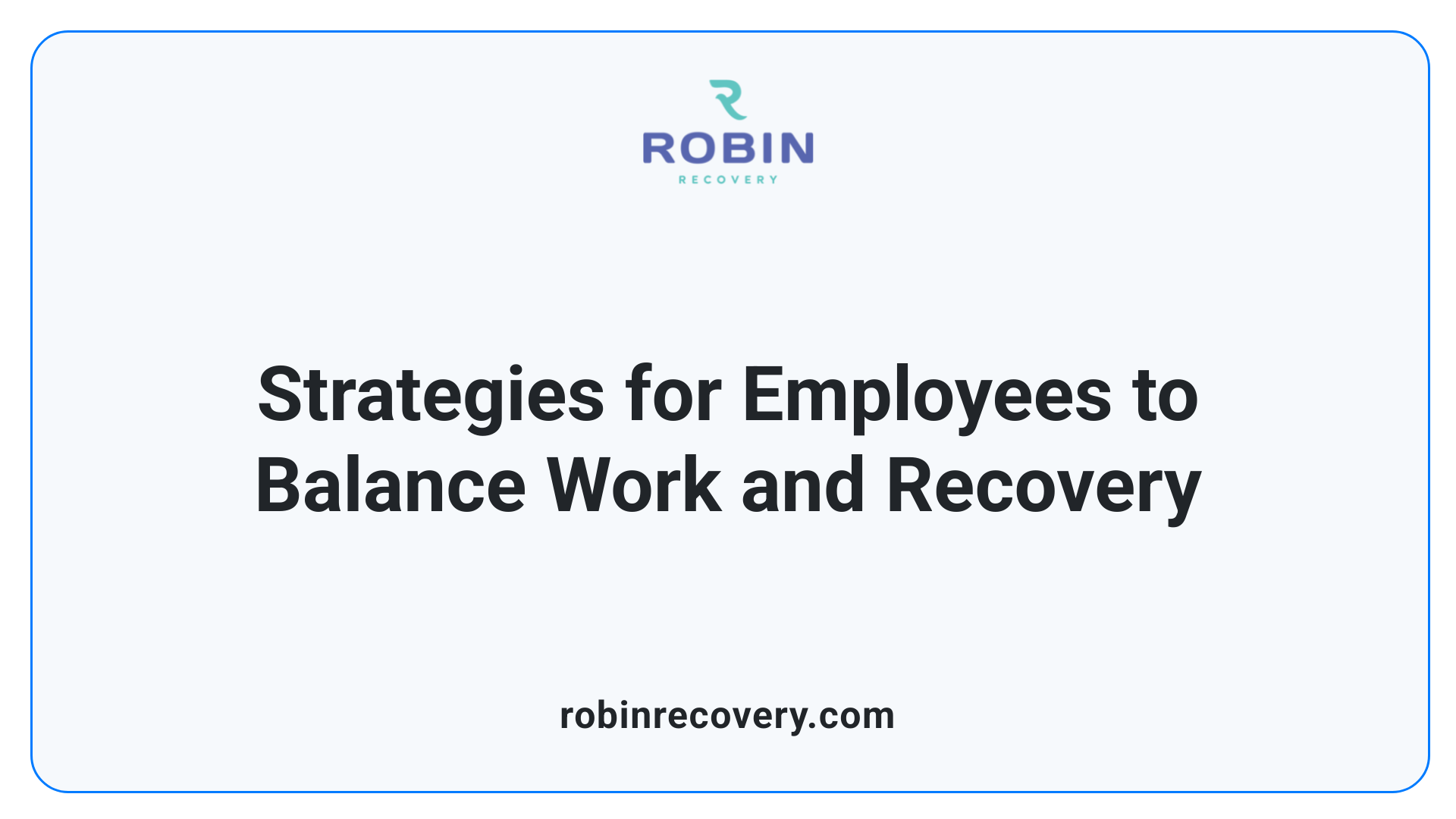How to Build a Recovery-Friendly Work Environment

Introduction
In today's workforce, addressing substance use disorders (SUD) is more crucial than ever. With 23 million Americans in recovery from SUDs, the need for recovery-supportive workplaces is undeniable. Employers have a unique opportunity to cultivate environments that assist employees on their recovery journeys, ultimately benefiting both the individual and the organization. This article outlines the essential steps to building a recovery-friendly work environment, focusing on inclusivity, support, and innovative approaches.
What is a Recovery Friendly Workplace?

Definition of a Recovery Friendly Workplace
A Recovery Friendly Workplace (RFW) is an initiative aimed at creating a supportive and healthy work environment for individuals affected by substance use disorders (SUD). This concept emphasizes the importance of prevention, support for workers in recovery, and facilitating their reentry into the workforce. The RFW program recognizes recovery from addiction as a strength and integrates supportive resources to help employees thrive in their roles.
Importance of Addressing Substance Use Disorders in the Workplace
Addressing SUD in the workplace is crucial as research indicates that approximately 27 million working-age Americans struggle with these disorders. Without support, these individuals face significant challenges balancing recovery with the demands of work. Environments that foster recovery improve not only individual health outcomes but also workplace productivity. Companies that adopt recovery-friendly practices often see reductions in absenteeism, turnover, and healthcare costs, ultimately boosting the bottom line.
Overview of the Recovery Friendly Workplace Initiative
The Recovery Friendly Workplace Initiative was launched in New Hampshire and has since expanded its reach to numerous states. It aims to equip employers with the tools, training, and resources necessary to create effective support networks for employees dealing with substance use issues. The initiative encourages a collaborative environment, promoting education on addiction and reducing stigma surrounding these challenges.
Through comprehensive assessments and the establishment of policies that support recovery, RFW initiatives enhance overall employee well-being, fostering both community loyalty and a healthier organizational culture.
Defining a Recovery-Ready Workplace

What defines a recovery-ready workplace?
A recovery-ready workplace is characterized by a holistic approach to supporting individuals in recovery from substance use disorders (SUD). This includes the implementation of inclusive policies and practices aimed at creating an environment where employees feel safe and valued.
Key features of such a workplace involve educating employees about their rights to reasonable accommodations related to recovery. This can encompass flexible work arrangements, accessible mental health resources, and a clear understanding of the organization’s substance use policies.
Impact of inclusivity and support in the workplace
Inclusivity plays a crucial role in fostering recovery. By actively reducing stigma surrounding SUDs, these workplaces not only help employees navigate their recovery journeys but also enhance overall productivity. Studies indicate that workplaces that prioritize inclusivity experience lower absenteeism and improved morale, with employees feeling empowered and engaged.
Role of flexible accommodation policies in recovery support
Flexible accommodation policies are vital for supporting employees in recovery. Such provisions may include options for remote work, flexible hours for treatment, and the opportunity to participate in recovery support activities during work hours. These practices help create a supportive atmosphere that acknowledges the challenges faced by individuals in recovery, ensuring that they can maintain their professional responsibilities while focusing on their health.
In summary, recovery-ready workplaces not only benefit employees but also present financial advantages for companies, highlighting the importance of creating supportive environments for all.
Strategies for Supporting Employee Recovery

How can employers create an environment that supports employee recovery?
Employers can cultivate an environment that fosters recovery by establishing a culture of trust and psychological safety. This means creating spaces where employees feel comfortable expressing themselves and discussing their challenges without fear of stigma or retribution.
Flexible policies that emphasize work-life balance play a critical role. Allowing for adjustments in work hours or remote work options can enable employees to attend treatment, therapy, or support meetings.
Open communication is vital. Regular feedback sessions can help build rapport and encourage collaboration. When employees feel heard, it leads to enhanced morale and innovation, contributing positively to the workplace.
Recognizing and appreciating employee contributions can further boost engagement. Simple acknowledgments of hard work can create a sense of belonging, which is essential for morale.
Lastly, providing learning and professional growth opportunities can empower employees, supporting their recovery journey. These initiatives not only improve employee skills but also enhance their sense of agency and purpose, crucial elements in recovery.
Additional Strategies to Foster Support
- Training Programs: Offering training on substance use disorders can reduce stigma and educate staff on how to support their colleagues.
- Peer Support Groups: Integrating peer support services can facilitate connections among employees, encouraging them to share experiences and strategies for success.
- Recovery Resources: Establishing clear pathways to recovery resources, like Employee Assistance Programs, ensures that employees know where to turn for help.
Tools and Resources for Transitioning to a Recovery-Friendly Workplace

What tools and resources are available to help transition to a recovery-friendly workplace?
A variety of tools and resources are available for organizations aiming to transition to a recovery-friendly workplace. One notable resource is the Recovery Friendly Workplace Toolkit developed by the White House's Office of National Drug Control Policy. This toolkit includes essential guidelines such as:
- Early Identification: Establishing protocols for recognizing signs of substance use disorders (SUD) at work.
- Instant Support: Enabling immediate access to resources for employees facing SUD challenges.
- Employer Flexibility: Adapting policies to support employees needing treatment or recovery accommodations.
- Regular Review: Conducting periodic evaluations of employee performance in a supportive manner.
- Enlisting Success: Collaborating with various stakeholders to create a supportive workplace environment.
Implementing these principles can yield significant advantages, such as reduced absenteeism and lower healthcare costs.
Why are flexible policies and accommodations important?
Flexible policies and accommodations are vital in a recovery-friendly workplace. Encouraging adaptability regarding work schedules, leave for treatment, and other supports creates a safe environment conducive to recovery. This flexibility can significantly reduce the stigma associated with seeking help, allowing employees to focus on their health and productivity without fear of jeopardizing their job security.
How can collaboration with local recovery organizations aid this transition?
Collaboration with local recovery organizations enhances support for employees struggling with addiction. By partnering with community resources, employers can provide tailored assistance that aligns with the specific needs of their workforce. This partnership not only aids in developing effective Recovery Accommodation Plans but also fosters a culture of awareness and acceptance. Leveraging these collaborations can improve employee morale and retention, ultimately creating a more productive and engaging workplace environment.
Balancing Work and Recovery: Employee Strategies

How can employees balance work and recovery effectively?
Employees seeking to manage both work and recovery can do so by first prioritizing their recovery journey. Setting clear boundaries between work and personal life is crucial, allowing individuals to avoid burnout and maintain focus on their recovery.
Effective time management tools such as calendars and to-do lists can be employed to organize both work responsibilities and recovery activities. This structured approach helps in minimizing conflict between job duties and recovery commitments. Regularly evaluating progress in both areas fosters motivation; small successes should be celebrated to reinforce positive behavior.
Building a supportive network is another vital strategy. Connecting with colleagues, family, or recovery groups creates an environment where accountability flourishes, encouraging employees to communicate openly about their recovery needs.
Incorporating self-care and mindfulness practices aids in managing stress levels and keeping one grounded. Techniques such as meditation, exercise, or even taking short breaks during the workday can significantly enhance well-being.
Lastly, establishing consistent routines further enables employees to balance their professional commitments with their recovery journey, supporting both personal growth and workplace productivity.
Conclusion
Creating a recovery-friendly work environment is not only beneficial for individuals in recovery but also advantageous for organizations as a whole. By implementing supportive policies, utilizing available resources, and fostering a culture of empathy and understanding, employers can make a significant impact on the recovery journeys of their employees. As substance use disorders affect millions, recognizing recovery as a strength and prioritizing mental health can lead to healthier, more productive workplaces. The journey to recovery support begins with commitment and compassion in embracing the needs of the workforce.
References
- [PDF] 3.0 CREATING A RECOVERY FRIENDLY WORKPLACE
- Becoming a Recovery Friendly Workplace - Workforce Development ...
- Recovery Friendly Workplaces - Health & Well-Being
- Recovery Supportive Workplaces - National Safety Council
- Recovery Friendly Workplace Programs
- [PDF] Recovery Friendly Workplaces - Partner4Work
- The Recovery-Friendly Workplace Guide: Supporting Employees in ...
- How to Create a Recovery Friendly Workplace - PSHRA
- Building Recovery-Friendly Workplaces | Disclo Resource
- It's National Recovery Month! Tips for Creating a Recovery Friendly ...
